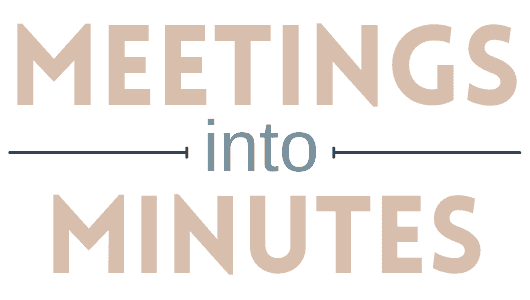Have you ever felt that urge in the bottom of your stomach to find a way to avoid that meeting at 1PM? Or, perhaps you’ve wondered what the point of the next meeting is and why your organisation even needs to hold meetings. Whether you’re the meeting organiser or just an attendee, there are plenty of great reasons why meetings in organisations are important.
Meetings are always an important feature of any business. Often the word ‘meeting’ brings about feelings of boredom, uninterest and even in some cases, a feeling of anxiety. Being in a room full of people with no way out and having to speak up in front of your peers may be the ultimate in a fearful situation for many. But, we’ve thought about this time and time again and want to share the news that meetings are in fact a good thing!
They Can Be Short And Sweet
Your meeting doesn’t have to take half the day with employees falling asleep in the meantime. In fact, that can be hugely detrimental to your business and of course would be a waste of time. If you’re running a meeting, keep it short and sweet. Not only can your team get back to doing what they do best, but your staff are likely to stay focused for the whole time, you can quickly go over the important bits then finish things up. If it’s a really short meeting, stay standing. Keeping everyone on their toes is just another way to keep everyone focused on what is being discussed.
Meetings Help To Get Everyone On The Same Page
We all know how great programs like Asana can be for your organisation to keep everyone working on the right tasks at the right time. But, when you’re starting a new project, holding a meeting can ensure everyone is completely up to date, knows what their responsibilities are and understands the full scope of the project that lies ahead. A start-up meeting will help your team to truly come together and understand what is happening. The same goes for remote workers and freelance workers. Skype and other online meeting spaces like GoToMeeting can help you to run a meeting, talk to each other easily and address any concerns in real-time.
Meetings With An Agenda = A Better Meeting
Although an agenda is usually always used in formal meetings (we hope!), even a casual gathering or meeting with staff could use an agenda to keep things on track. It could be as simple as writing a short list on a whiteboard in front of the team and ticking off each point as you go through the meeting. It ensures your staff know exactly what your meeting is regarding and also helps to jog their memory at the end to ask questions about anything covered.
Meetings Build Relationships
Not sure who the new person is across the room from you? Is there a new manager coming on board in a week? When you hold a meeting, it’s a great opportunity to get to know the people you are working with who are supposed to be your teammates! When new staff are employed, use a meeting to get everyone to acknowledge your new staff member and help them to feel welcomed. We all know how hard it is to start in a new role and not know anyone. Meetings are a great way to get the team together, brainstorm new ideas and get to know people better.
Meetings Provide Feedback
There are times when you think everyone is working well and has no issues whatsoever, as nothing has been said in an email or message anywhere in the communication funnel. When you hold a meeting, whether it be face-to-face or online, chances are you’ll be able to receive vital clues and feedback from the people you’re working with that wouldn’t normally be seen or known. As an example, one person may be feeling a little anxious about a presentation they need to do in front of a potential new client. They may not willingly say this to others via email, but it may be easier to see and hear from that person within a meeting setting. Meetings are safe places to provide feedback and get your team working together. Something that may be bothering a staff member may be able to be resolved easier and more efficiently in a meeting setting.
Meetings aren’t all bad. Of course, there are times when meetings are compulsory, such as for Annual General Meetings and Board meetings. But, for those that aren’t, that’s no reason to skimp on them. If you’re not already running them, start them off by holding a meeting and discussing your new meeting regime. When your meeting is run correctly, you and your staff will wonder how you ever got anything done without them.





